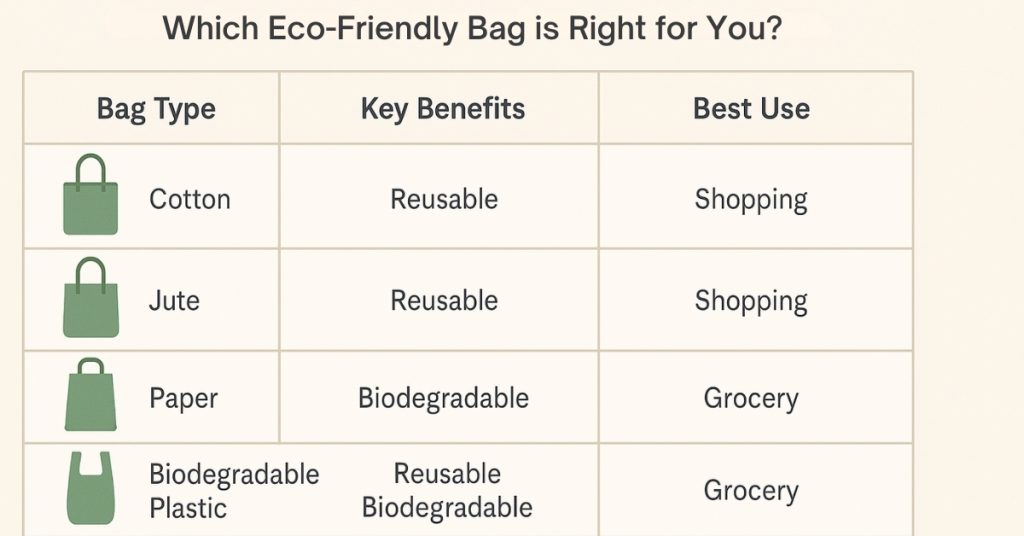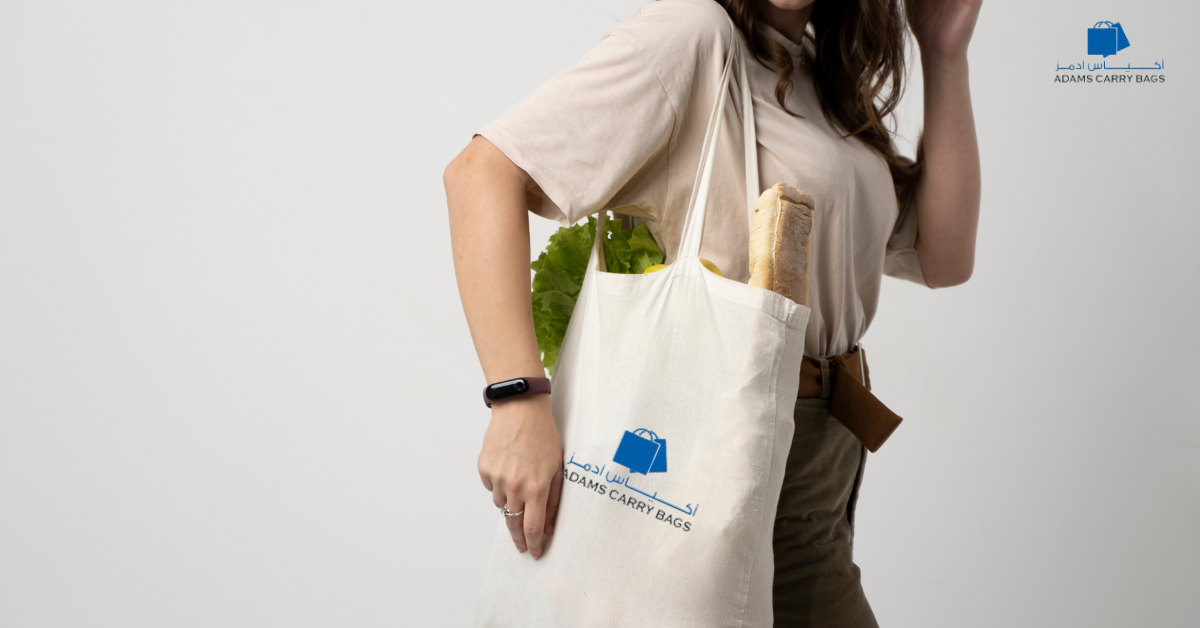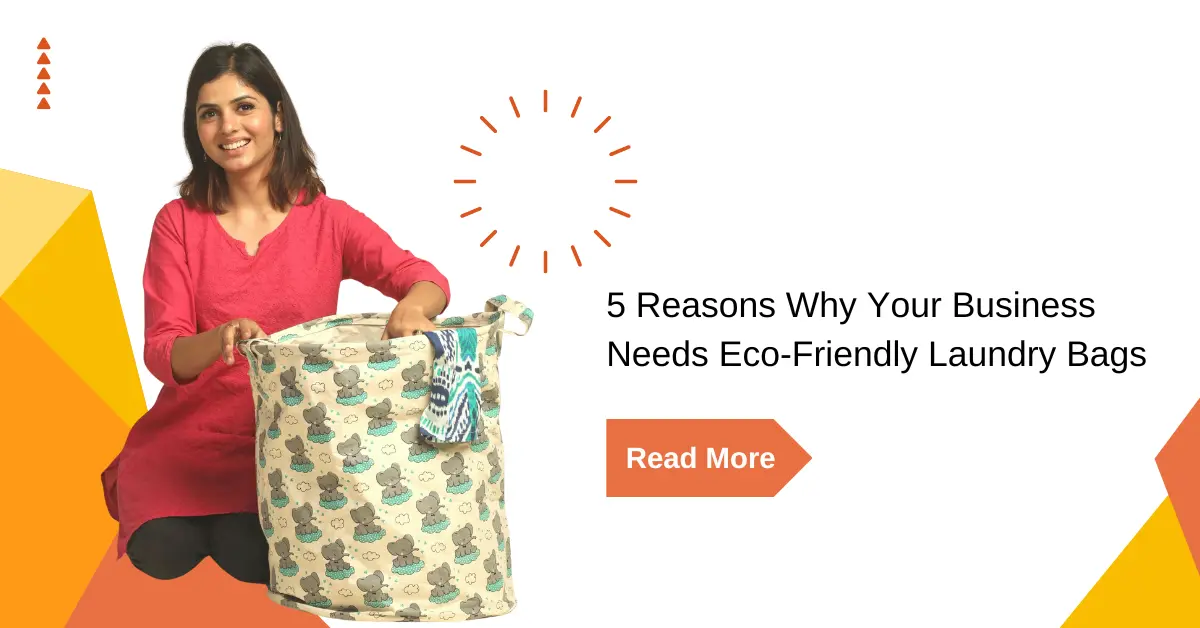Plastic pollution stands as a major environmental threat that exists in the present. Yearly production of 300 million tons of plastic waste produces a mere 9% recycling rate according to UN reports. All remaining plastic material ends up in landfills and floats in ocean waters and spreads across environmental areas and remains there for hundreds of years. Worldwide plastic usage of bags exceeds 5 trillion per year thus creating a major environmental challenge.
According to the World Economic Forum, new consumption patterns are vital since by 2050 plastic materials in ocean waters will outnumber ocean fish, according to projections. The successful implementation of plastic ban and taxation laws exists in several nations although personal behavioral changes are needed to create any meaningful impact on plastic usage.
These environmental hazards have generated more interest in finding eco-friendly alternatives to plastic bags. Switching to sustainable options again creates positive effects on three fronts, including environmental pollution reduction and natural resource conservation alongside wildlife protection. Using eco-friendly bags enables everyone to create the best environmental outcome by protecting our planet toward a greener and cleaner future.
The Environmental Effects of Plastic Bags
Plastic bags may seem convenient, but they come with severe consequences:
Non-Biodegradable Nature
The decomposition process for a plastic bag extends up to 500-1,000 years. Small breakdowns in a single plastic bag lead to its transformation into microplastics which get absorbed into food chains and impact both wildlife populations and human beings.
Harm to Wildlife
- Plastic bags create severe issues for land animals by getting trapped among tree and bush areas which blocks animals from moving freely.
- Marine animals suffer from plastic pollution which kills more than 100,000 individuals each year and 1 million seabirds perish in the same way.
- The consumption of fish containing microplastics eventually leads to human food consumption which poses health risks.
Carbon Footprint
Each year the production process of plastic bags releases millions of carbon dioxide emissions that significantly affect the environment. The high-energy, unsustainable process of petroleum extraction coupled with its chemical refinement and production phase, makes up an environmentally unsustainable system.
Soil and Water Contamination
Plastic bags release hazardous chemicals that pollute both water sources and soil. BPA together with phthalates are two substances which scientists connect to severe health situations including hormonal disorders and reproductive troubles.
Impact on Drainage and Flooding
On occasion, they block drainage, initiating urban flooding during heavy rainfall. Cities around the world are flooded badly, as sewage lines are obstructed by plastic waste.
The ecologist injury caused by plastic bags underpins the need to switch immediately to environmental alternatives that are sustainable and biodegradable.”

Why Choose Eco-Friendly Alternatives?
Switching to eco-friendly alternatives to plastic bags benefits every person and the environment like.
Durability & Reusability
Reusable bags are tougher than plastic bags. In fact, a good fabric bag can last for years and carry over a load. If treated properly, it will replace more than 500 single-use ones.
Reduction in Waste
Using these bags significantly minimizes plastic waste and hence reduces landfills and marine pollution.
Health Benefits
Plastic bags contain chemicals that may leach into food and water. Sustainable alternatives to them are cotton, jute, and paper. It makes them safer alternatives.
Support for Sustainable Practices
By going for eco-friendly bags, one lobbies for industries to go green and market one’s wares for local artisans who make reusable bags.
Economic Benefits
Countries and cities charge some taxes or fines against the use of plastic bags. In the end, and over time, using reusable carriers will be quite cheaper.
Real-Life Example:
These days, groceries provide some discounts or give other benefits to users of reusable bags. The example of cities with a ban on plastic bags will show that so great reductions in waste occur with small changes.
Best eco-friendly alternatives to plastic bags
The best way to reduce plastic waste is to switch to sustainable bag options. Here’s a quick comparison:
| Eco-Friendly Bag Type | Benefits |
| Cotton Bags | Biodegradable, reusable, and washable |
| Jute Bags | Strong, long-lasting, and compostable |
| Paper Bags | Recyclable and biodegradable |
| Reusable Mesh Bags | Ideal for grocery shopping, lightweight, and breathable |
| Biodegradable Plastic Bags | Break down faster than regular plastic bags |
| Silicone Storage Bags | Reusable, safe for food storage, and reduces single-use plastic |

How to Choose the Right Eco-Friendly Bag
Choosing right eco-friendly alternatives to plastic bags depends on several factors:
- This item builds its primary purpose from carrying grocery deliveries alongside shopping goods and delivery orders from restaurants.
- Heavier weights, such as jute and canvas, find suitable support from these materials because of their durability.
- For environmentally friendly options, the most optimal choice includes materials that degrade or can be recycled.
- Reusable bags can be managed effectively when they arrive as lightweight designs that can fold compactly.
- Users must find cleaning and maintaining the reusable bag simple enough to perform.
Tips for confidence Others to Use Eco-Friendly Bags
- The demonstration of reusable bags in your everyday life will display their convenience to others.
- The choice of presenting sustainable bags with a reusable concept encourages recipients to adopt this green alternative.
- Knowledge sharing about plastic waste consequences alongside relevant information about sustainable alternatives leads to substantial change in behavior.
- Support for environmentally friendly brands can be achieved through product purchases from their companies.
- Community initiatives exist for people to join and help create plastic-free environments.
Adams Carry Bags: Leading the Future of Sustainable Shopping
The future of shopping will be eco-friendly alternatives to plastic bags. Sustainability is becoming the priority field for more brands like Adams Carry Bags that are inventive and tough enough to replace plastic bags. This is not only environmentally friendly but also creates a culture of responsible consumption.
Adams Carry Bags believes that conserving the planet is through sustainable bag solutions. The new definition of eco-friendly alternatives to plastic bags will imply that your choice today will make the future greener.
Co-Friendly Alternatives: Reducing Plastic Waste for a Sustainable Future

Plastic bags are convenient but some of the deadliest enemies of Mother Nature. The transition to positive environmental materials foreco-friendly alternatives to plastic bags substitutes of plastic bags allows mankind to live in a sustainable future through lessened waste production and pollution levels. Using any sustainable bag-whether made from cotton or jute or biodegradable materials-helps the environment.
FAQs
1. Are eco-friendly alternatives to plastic bags really better for the world?
He manufactured products that combat plastic pollution while offering sustainable advantages and minimal environmental effect.
2. What material is best for an environmentally friendly bag?
Multiple sustainable materials like cotton along with jute and paper and biodegradable plastics serve well as eco-friendly bag materials. These environmentally friendly materials decrease product waste together with reducing environmental damage.
3. You can reusable bags be washed and reused?
The main function of eco-friendly bags serves various needs while including attributes for preserving cleanliness and longevity.
4. How can I remember to carry reusable bags?
Place your reusable bags in your vehicle or handbag and keep them preferably near your main entrance for quick access.
5. Do reusable bags carry germs?
The same hygiene practices used for other possessions need to be applied to the cleaning of reusable bags.





